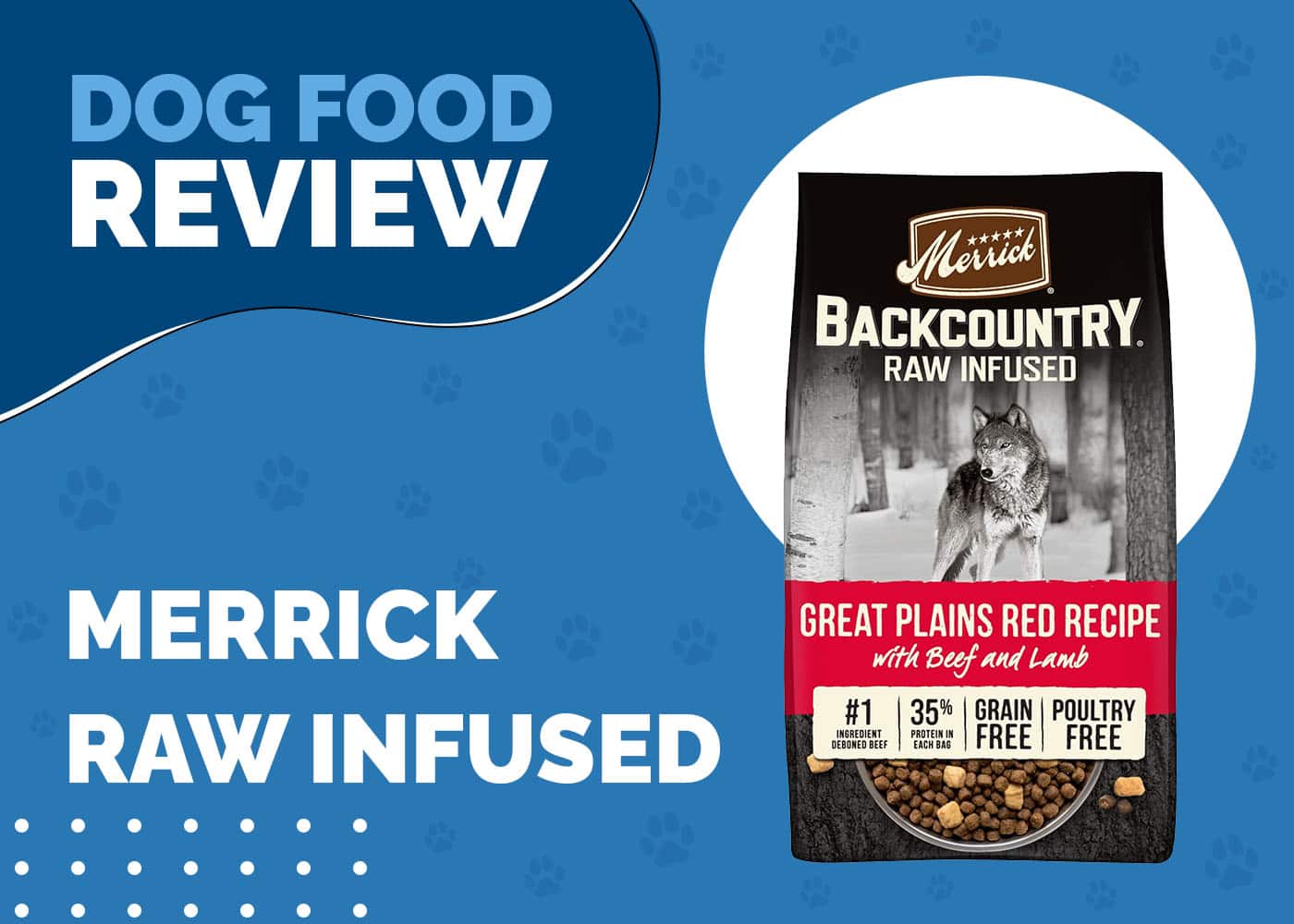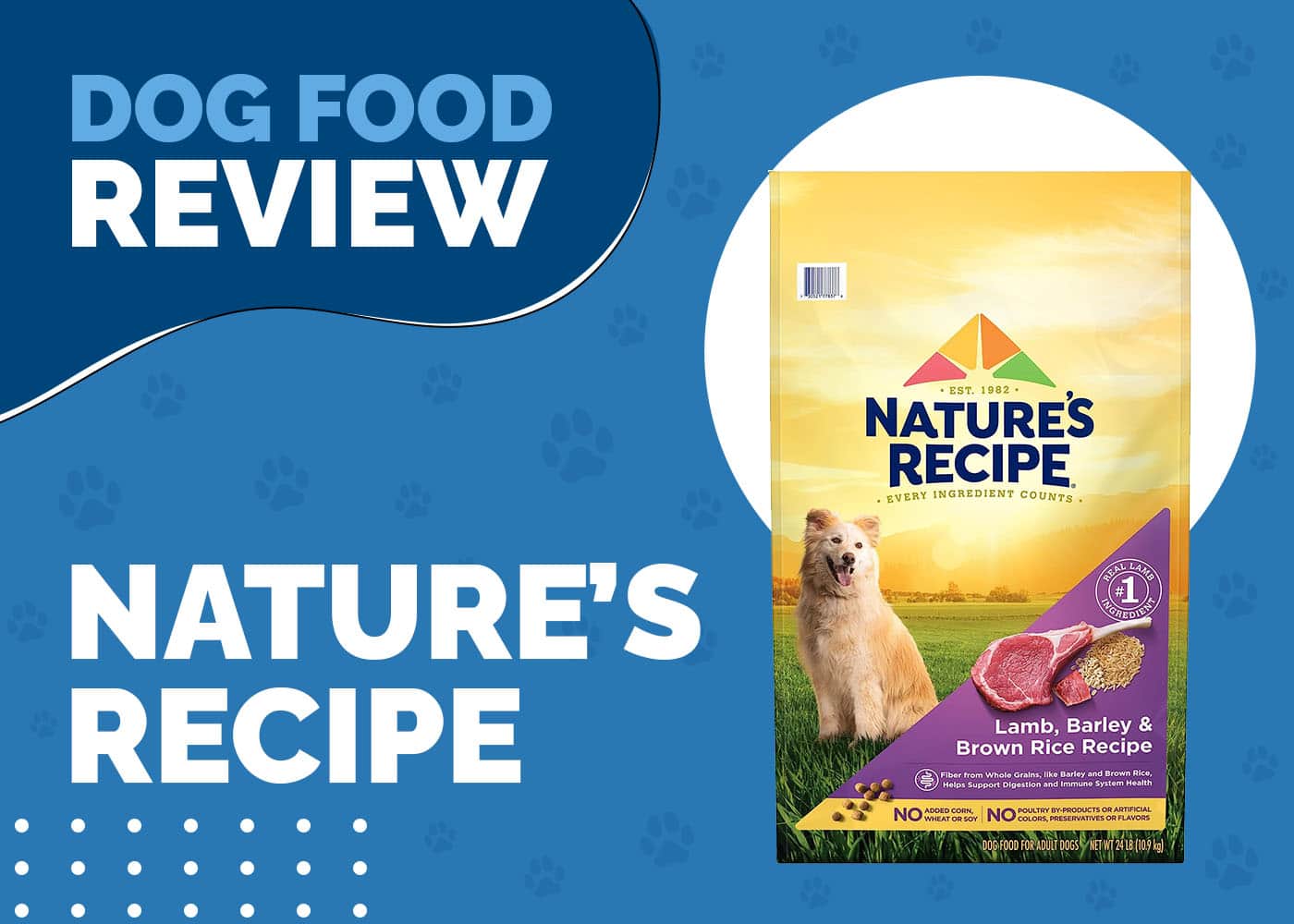9 Natural Home Remedies for Dog Shedding to Try Today!

Updated on
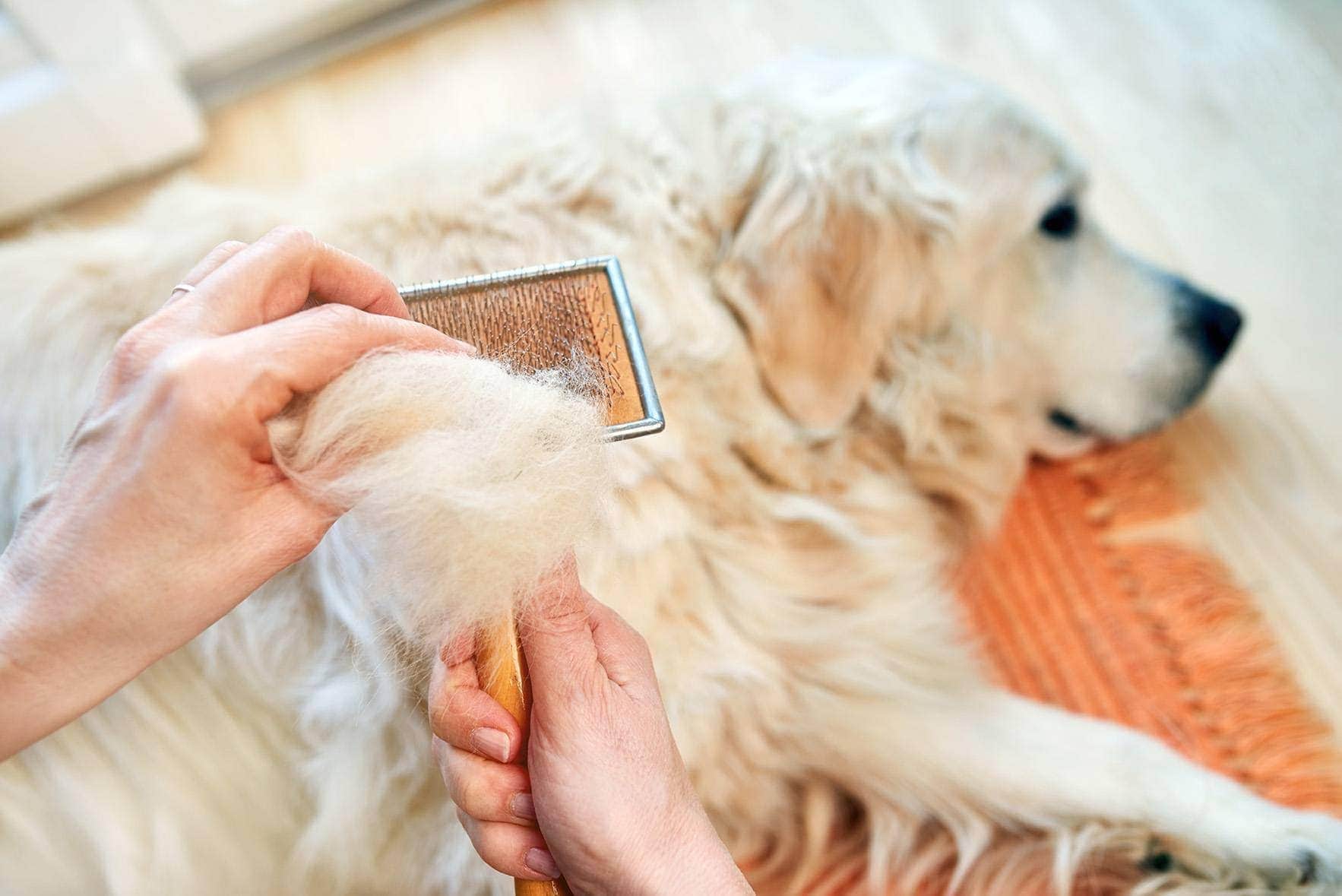
Any dog owner is familiar with shedding, some more than others. Having dog hair all over the house, especially if they have a breed that blows their coat, is simply an accepted aspect of a dog owner’s life.
However, there are healthy amounts of shedding, and then there is excessive shedding. This is when it becomes a problem. If you notice them developing bald patches or having unusually thin hair scattered across their body, they might need treatment.
Going to a vet and paying for a chemical medication to prevent the problem from progressing is one solution. But with your vet’s help, you can also try and treat your pup with natural remedies to be kinder to the budget. Here are the nine best home remedies for dogs itching and losing hair:
Top 9 Dog Hair Loss Home Remedies:
There are many possible solutions to the problem of hair loss in your pup. It helps if you know what is causing the reaction. Once you do, make yourself familiar with the myriad natural solutions to get an idea of the best fit for your doggo.
1. Frequent Brushing
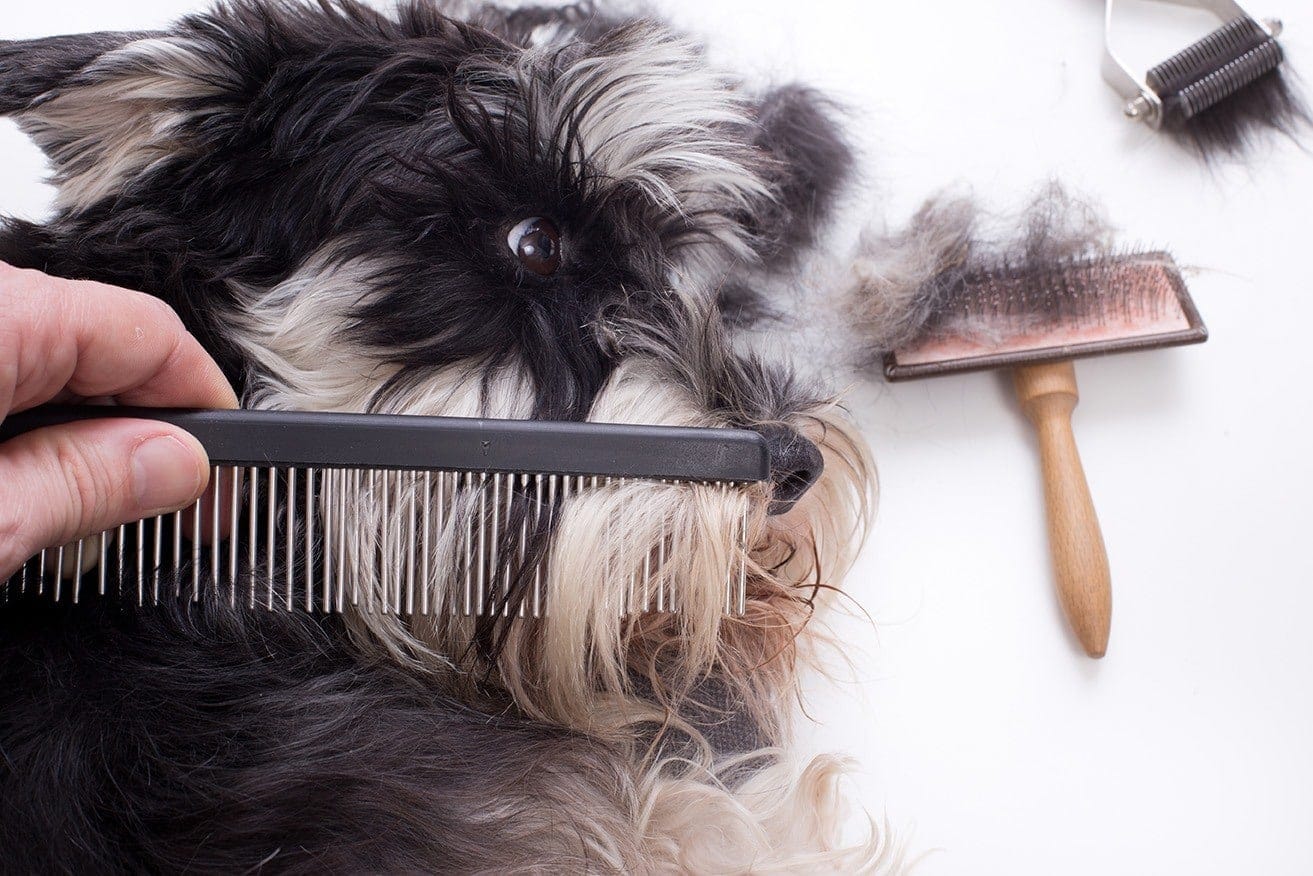
Starting with the simplest solution is always the easiest for you and the dog. The frequency with which you brush your dog could be one of the factors contributing to the issue. The natural oils that their skin produces are essential to the health of their skin and coat.
If these oils don’t make it through the hair on their coat, the fur can end up brittle, breaking off much easier and further hair loss.
Brush out your dog regularly to help regulate the spread of these essential oils. It truly helps keep their coat full and lustrous.
2. Dietary Fix
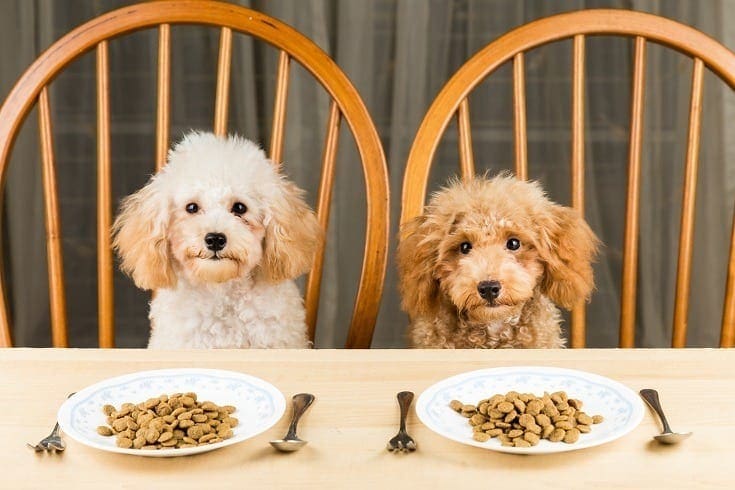
Just like with humans, a dog’s diet affects so much more than their taste buds. Their coat tends to be a direct reflection of their daily nutrition. They require certain omega-3s, other fatty acids, vitamins, and nutrients to keep their systems functioning properly.
If they have allergies to certain foods, then consuming these can lead to dire results. If they are not responding well to any of the store-bought food you get, try introducing them to homemade options made with natural foods. This way, you can ensure that their diet is as balanced and healthy as possible.
3. Lemon Juice
Lemon juice is offered as a natural remedy to almost anything you can think of, both health and cleaning-related. The reason for this is because of the concentrated antibacterial properties in the citric acid.
Lemon juice isn’t concentrated enough in acid to cause further damage or burn skin. Making a wash from it can help treat any problems caused by bacteria.
To use it, infuse a quart of warm water with lemon slices for 5 hours. Afterward, strain the liquid, so there are no leftover particles. Apply this to the affected areas on the dog, or wash them with it. Make sure it stays out of their eyes if you opt for the latter.
4. Humidifier

Since there are oils inherent to the skin and fur of the dog, a dog with dry skin can experience more hair loss. If you and your pup live in an arid climate, then there is a likelihood that this could be the case. If the hair loss is coupled with dandruff from flaking skin, then it is a sign that this is the cause.
An easy way for you to solve this is a humidifier. Place it in an area where your dog spends more of their time, like near their bed. Not only will this help your dog, but it may also have a positive effect on your own skin.
5. Apple Cider Vinegar Wash
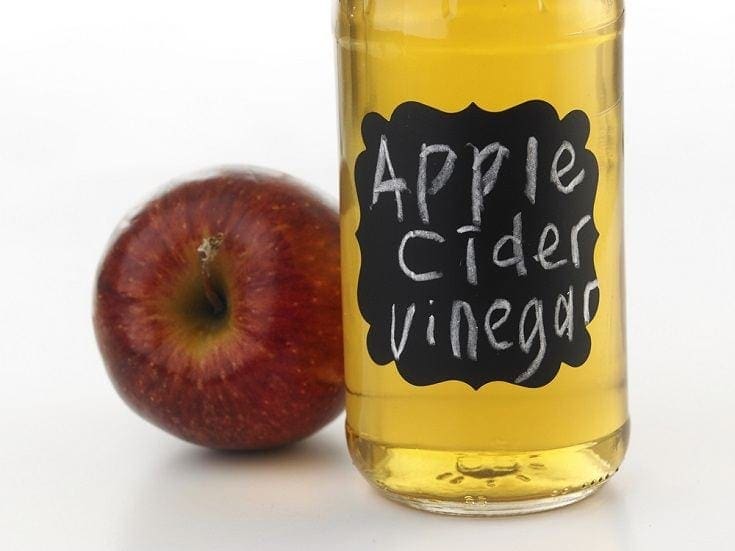
Apple cider vinegar(ACV) holds a status akin to lemon juice when it comes to natural home remedies. Chock full of a beneficial acid, acetic acid, ACV has antifungal and antibacterial properties.
Make use of the ACV remedy by applying it to the affected area with a cotton ball or swab. Wash it off after a while, so it doesn’t do any damage. Since it helps boost one’s immune system, you can also add a couple of drops to their water.
If the problem is no longer localized, it is easier to treat it with an antifungal bath. An ACV bath treats symptoms of yeast infections, along with bacterial issues. An undiluted vinegar bath is a more effective way of treating hair loss naturally because it covers so many bases.
6. Flaxseed Oil
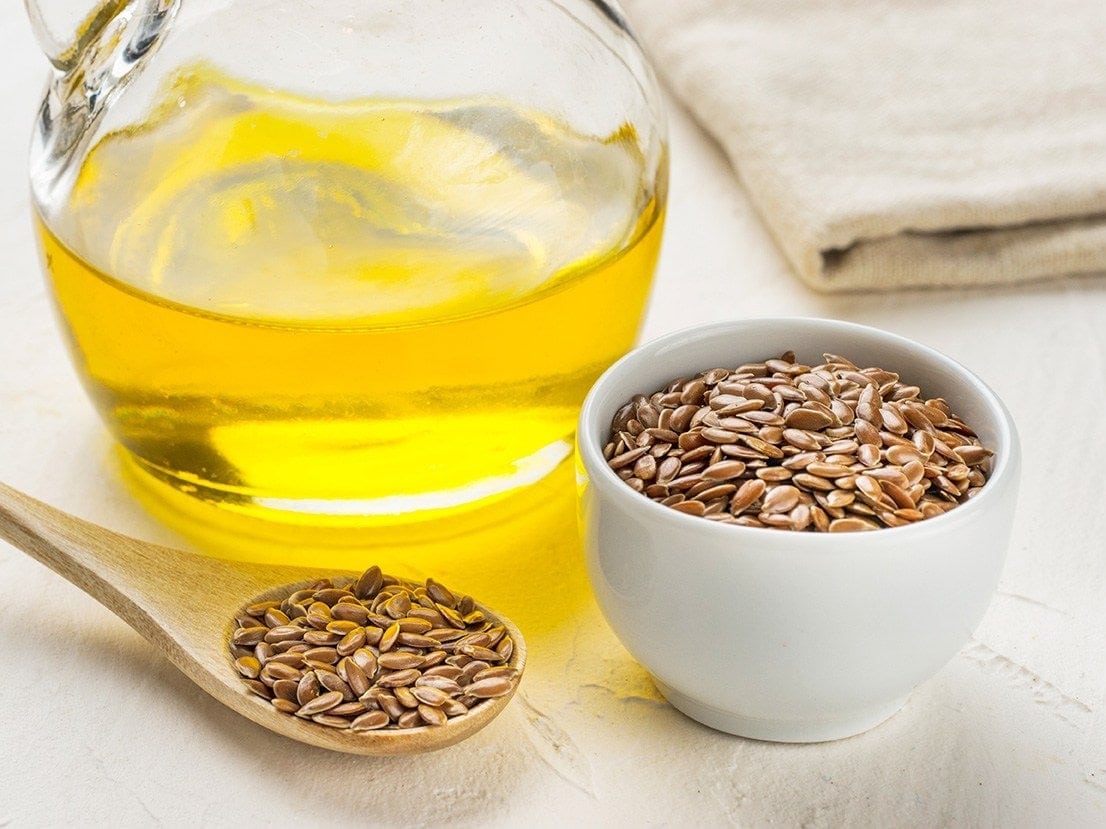
A pup needs plenty of omega-3 fatty acids in their diet to maintain a healthy coat.
Adding flaxseed oil into their daily or weekly mix gives them a shot of omega-3s since it contains an abundant amount of ALA. It helps treat symptoms of dry and itchy skin and the (literal) fallout from these issues.
Not only does it help with dry skin, but it also treats inflammation throughout the body. Incorporate it into your pup’s diet by mixing it into their food.
7. Olive Oil
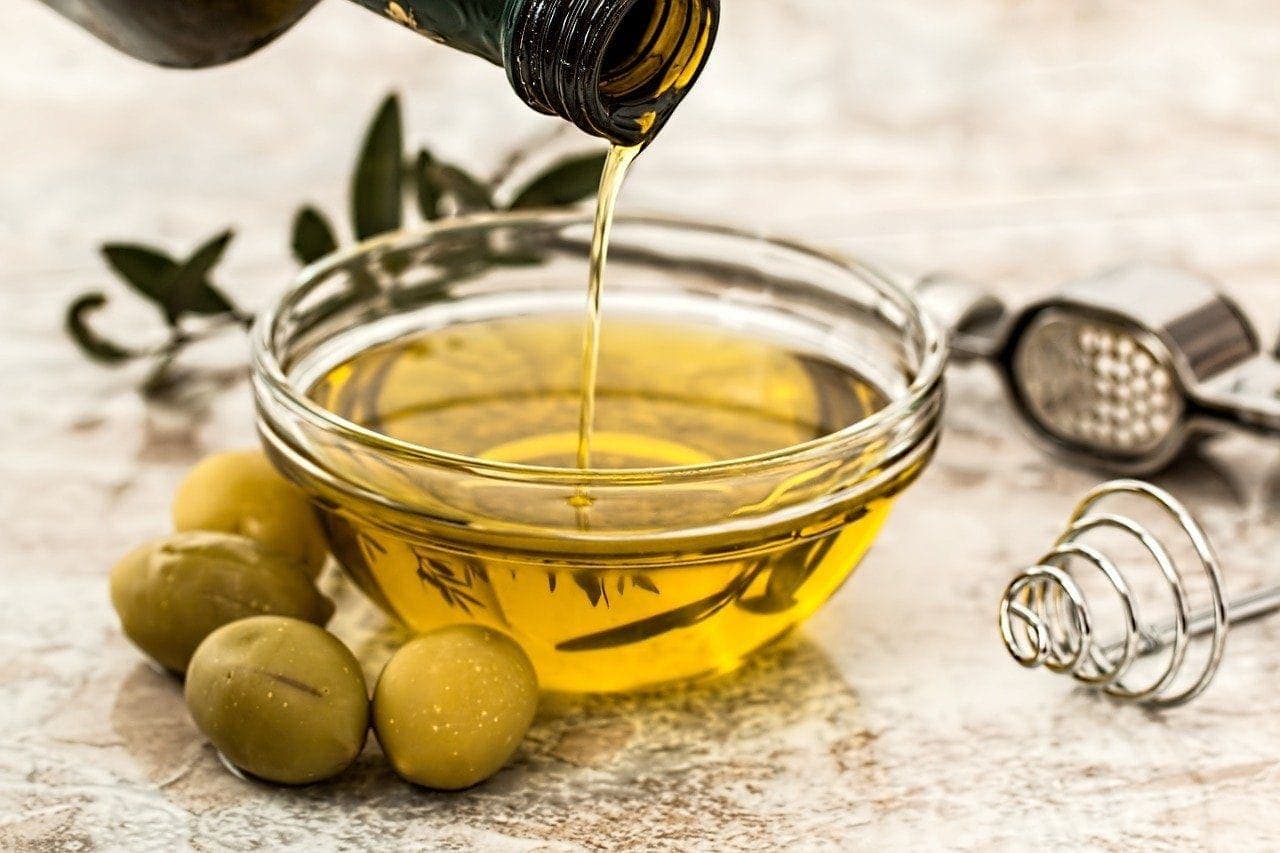
If we struggle with dry, flaking skin, we often treat it by rubbing lotion on it. Although lotion is not typically a wise solution because of the other compounds it contains, the concept still stands.
For dogs, replace lotion with olive oil, and you have a winner. Pair this solution with one of the other, long-term internal solutions to keep them comfortable consistently.
Rub olive oil on your palms, and massage it onto the affected areas of your dog’s coat. Try to run it gently throughout the rest of your pup too. It gives an all-over shine and treats the dry areas like it’s a salve.
8. Aloe Vera
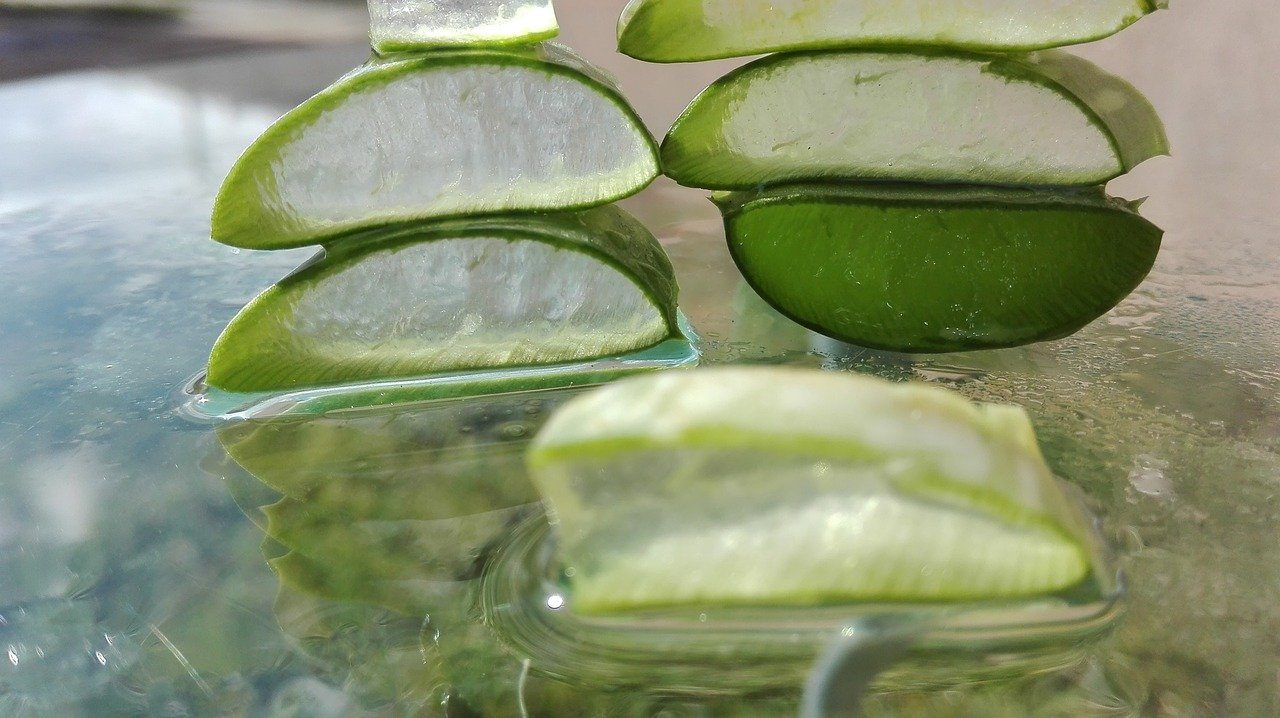
Most of us are familiar with the healing and cooling properties of aloe vera when applied to a cut or a sunburn. Did you know that it soothes itchy skin symptoms as well?
The translucent, somewhat chunky insides of aloe vera contain high levels of nutrients like vitamins A, B12, C, and E, as well as folic acid. The enzymes inside also aid in treating many topical problems.
Apply aloe to the areas of the scalp and hair on your dog that are affected the most. They remove dead skin cells and instill the area with strengthening nutrients that help it to heal.
9. Coconut Oil
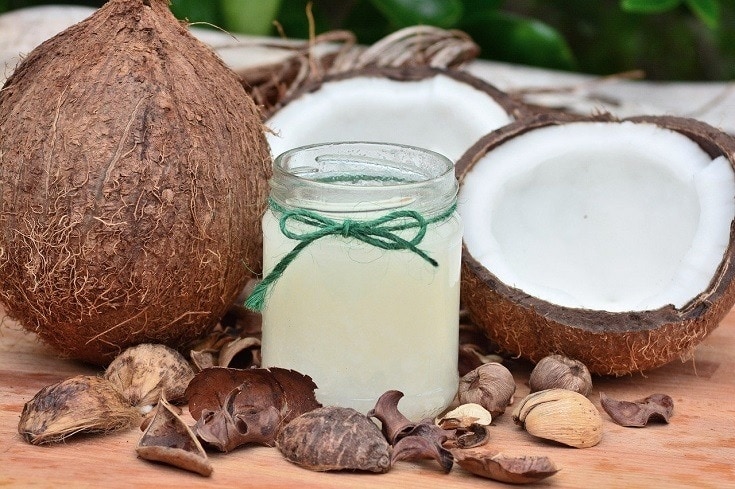
Coconut oil contains lauric acid, and it can be given orally or topically to reap results. Applying it topically in localized areas helps treat many different skin conditions, including hot spots, itchy, dry skin, bites, or stings. If your pup suffers from dry paws, try making a coconut oil balm.
For more widespread results, you can supplement their diet with coconut oil. Before trying this, consult your vet. Ensure that they do not have any allergies to coconut oil, so it doesn’t hurt more than help.
Start with small doses once you have been given the okay. Increase them as needed over time. The benefits of this include a sleek, glossy coat, healthier skin, reduction in doggy odors, as well as treating symptoms of arthritis, increasing metabolic function, and aiding weight loss.
Common Reasons for Hair Loss
Quite a few different external factors can cause hair loss in dogs. Without knowing what causes the problem, you might just be trying out solutions that act as a band-aid on the wrong part of the body.
Look through the list of potential factors. If you still don’t know the cause for sure, talk to your vet about the recurring problem.
Parasites
Dogs like to get plenty of time outdoors. However, some dangers accompany that time, especially if it isn’t in a controlled environment. An infestation of parasites like mites, ticks, fleas, or mange can wreak havoc on their hairline.
It doesn’t only have to be external to do damage. Consider a bacterial infection or fungus too.
Hormonal Imbalances
Humans aren’t the only ones who can suffer from hormonal imbalances. Hormones regulate almost every major function in the bodies of most living beings. If there are abnormalities in the way they are released or used, diseases and symptoms can manifest in negative ways.
Allergies
Allergies are prevalent in some breeds, although there is a possibility that a dog of any breed can have allergies. Typically, hair loss or flaky skin is not the only evidence of a food allergy. A typical giveaway that this is the culprit is any accompanying symptoms, such as diarrhea, vomiting, frequent ear infections, and itching.
- You might also like: Best Dog Foods for Allergies – Reviews & Top Picks
Genetics
Parental genetics have a role in what your pup is prone to in terms of diseases. If the parents have had a certain disease, then some of the genetics they pass to their puppies can carry the trait for the illness. A few of these include a proclivity toward skin and coat ailments.
Age or Injury
As dogs grow older, their bodies start to change, and have a harder time keeping up with them. Sometimes, this can manifest in a lack of oils for their skin and coat. They may need extra supplements to help their systems. Injury can also “distract” the body while it heals.
Keep an eye on your pup and what their new needs could be as they go through life changes.
Nutrition
Lastly, nutrition, or the lack thereof, is a leading factor in the degradation of a dog’s coat. Ensure that they receive everything they need each meal and not too much extra. Eating something they shouldn’t can be just as damaging as not getting all the nutrients in their daily food.
Once you have an idea of what could be the cause, take them to the vet to verify. Even if a remedy is natural, it doesn’t mean that it can’t cause a further imbalance in their system. Help your pup out as best you can by seeking guidance and ensuring the most appropriate treatment possible.
Conclusion
While shedding is normal in dogs, excessive shedding can be an issue. With your vet’s advice, there are some natural remedies you can try to reduce your dog’s shedding, and one of the options above may do the trick.
Of course, if none of these help, it’s always a good idea to consult with your vet and make sure there are no health issues present with your dog.
- See also: Dog Losing Hair Around Their Eyes?
Featured Image Credit: sonsart, Shutterstock


